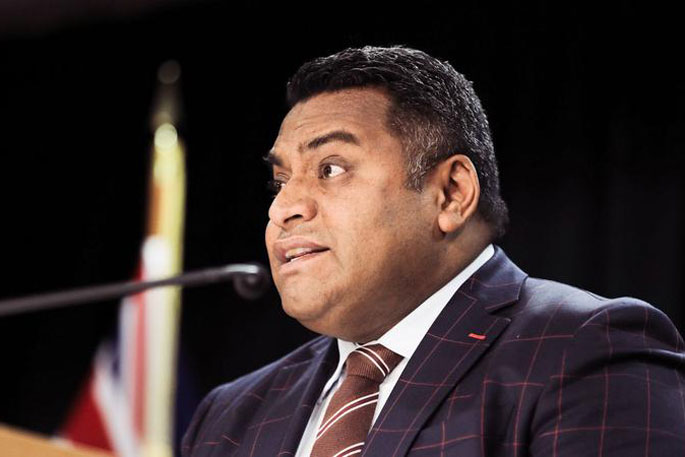Justice Minister Kris Faafoi has announced appointments to the independent panel that will lead a review of New Zealand's electoral law.
'This panel, appointed by an independent panel of experts, aim to make election rules clearer and fairer, to build more trust in the system and better support people to exercise their democratic right to vote,” says Faafoi.
'We do have a world-class electoral system. But we need to make sure the rules remain fit for purpose and meet the needs of our future voters.”
The Government announced the review last year which will take place in two parts: a broad review led by the independent panel over the next 18 months, and targeted changes ahead of the 2023 General Election.
The Independent Review will look at elections rules such as:
· voting age and overseas voting
· funding of political parties
· the length of the parliamentary term
· the Electoral Commission's recommendations on MMP:
· changes to the party vote threshold
· one seat electorate rule
· ratio of electorate seats to list seats
· the overhang rule
The independent panel, which was appointment with bipartisan support, will be chaired by Deborah Hart, a highly experienced director, lawyer, and chief executive.
The other members are Māori academic and political commentator Dr Maria Bargh; electoral law expert Professor Andrew Geddis; disability advocate and law student Alice Mander; former Chief Electoral Officer Robert Peden; and lecturer and New Zealand Election Study co-lead Dr Lara Greaves.
'Maintaining public confidence in elections is critical for our democracy. This review is a once-in-a generation opportunity to consider how to make our electoral laws clearer, fairer, and more accessible,” says Faafoi.
'I have consulted with all parliamentary party leaders and Parliament's Justice Committee on the Terms of Reference for the review. Consultation also included other groups, such as Māori organisations, youth organisations, universities and the New Zealand Law Society when seeking nominations for potential panel members.
'It is critical that the review has broad public and cross-party support. 'Appointing an independent panel will ensure that the review is fair and impartial.
'I am confident that the panel members have the right mix of skills, expertise, and diverse perspectives to lead this important mahi. Public engagement will be a key part of the review, so New Zealanders will have a chance to share their views before the panel makes its recommendations,” says Faafoi.
The independent panel will consider a range of issues including the length of the parliamentary term, the voting age, the funding of political parties, and the Electoral Commission's 2012 recommendations on changes to MMP. The Terms of Reference for the review are attached.
'The review is a significant opportunity to independently evaluate all our electoral laws by listening to the voices of the people to ensure the overall framework and regime is fit for purpose and future proofed to best serve Aotearoa New Zealand. I am honoured to chair that review," says Panel Chair Deborah Hart.
The independent panel's final report is expected by the end of 2023.
More about the panel members:
Deborah Hart (Chair) is a consultant with experience as a lawyer, director, chief executive, and government relations specialist. She is currently chair of the Consumer Advocacy Council and the Holocaust Centre of New Zealand, on the board of DocEdge, and is the director of ASH NZ. Since 2013, she has been a panel member of the Human Rights Review Tribunal and has previously served on the expert reference group for the Family Justice review and undertaken the independent review of the Banking Ombudsman.
Dr Maria Bargh (Deputy Chair) (Te Arawa, Ngāti Awa) is an Associate Professor at Victoria University of Wellington and the former head of Te Kawa a Māui – School of Māori Studies. She has served on a range of governance boards and currently serves on several academic editorial boards, including the Policy Quarterly Journal. Her research focuses on Māori politics and representation and the New Zealand electoral system and was recognised by a Royal Society Te Puāwaitanga Research Excellence Award in 2020.
Professor Andrew Geddis is a leading academic from the University of Otago and a commentator on public and electoral law. He has written a much-cited textbook on electoral law in New Zealand and was a member of the Legislation Design and Advisory Committee.
Dr Lara Greaves (Ngāpuhi/Pākehā/Tararā) is a political scientist at the University of Auckland specialising in New Zealand and Māori politics. She has expertise in the New Zealand electoral system and the wider constitutional context, including Te Tiriti o Waitangi.
Alice Mander is the co-president and founder of the National Disabled Students' Association, as well as being a full-time law, film, and sociology student. She has won numerous academic awards, including the NZ Law Review prize and the Chris Highfield Memorial Prize in Public Law. She is a strong advocate for removing barriers to participation for the disabled community.
Robert Peden is a former Chief Electoral Officer and chief executive of the Electoral Commission who oversaw three general elections, four referendums, and many by-elections. He has significant experience providing advice to ministers on public, constitutional, and electoral law and policy.



1 comment
We need to jig the vote
Posted on 25-05-2022 08:11 | By an_alias
Polls are looking so bad, hey guys we need to jig the vote a bit and allow as many people to vote for us as possible. Anyone will do.
Leave a Comment
You must be logged in to make a comment.